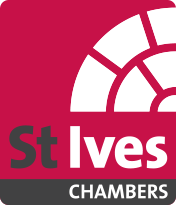The Financial Dispute Resolution Hearing (‘FDR’) is a key hearing in Court proceedings, providing the parties with an opportunity to resolve all remaining issues between them. It is a meeting for the purposes of discussion and negotiation.
The essential feature of an FDR is that the parties will have the opportunity to put their case to a Judge, if necessary, and ask for a realistic and independent indication as to what would be a fair settlement and what the Court would be likely to order if the matter were not resolved by agreement.
Unfortunately, the pressure on the Courts is such that the parties often have to wait many months to secure a hearing date, during which time they remain in financial limbo. Sadly, sometimes a Judge with a busy list simply does not have sufficient time to read and evaluate all of the documentation filed in the case; on occasion this can result in a very ‘broad brush’ approach being taken, leaving some parties frustrated and disappointed.
Judges have increasingly recognised the benefit of private FDRs led by an experienced practitioner acting as a “neutral evaluator” who has far more time to look in detail at the case and assist in addressing any sticking points. Since the outbreak of Covid-19, Mr Justice Mostyn has urged that parties should be encouraged to consider private FDRs.
A private FDR avoids potentially long delays and secures a tribunal with sufficient time and expertise to assist the parties in reaching an agreement that can then be made into a final Court Order. The parties will be able to jointly choose their “neutral evaluator”. Given that the majority of cases end in agreement, the parties are likely to save significant costs and, equally importantly, spare themselves the stress of continuing litigation.
It is a popular misconception that private FDRs are only appropriate in “big money” cases. This is not the case. They are equally effective where resources are scarce. They shorten litigation thereby reducing cost. Early neutral evaluation is not confined to divorce cases. This route is also available to parties in cohabitee and property disputes.
A Private FDR can be substituted for a Court FDR by agreement. However, there is no reason why the parties should wait until court proceedings have been initiated, as they can seek an early neutral evaluation, saving the front loaded costs of issuing proceedings.
If budgets are tight other options can be offered to reduce costs. For example, St Ives Chambers is piloting a scheme where couples wishing to achieve a negotiated settlement can obtain a joint written advice or meet with a barrister at an early stage in conference to identify a fair order. The instruction can be limited to an indication on one key issue.
Solicitors may choose to represent their clients themselves, avoiding the cost of instructing counsel.
In summary a Private FDR / Early Neutral Evaluation provides:
1. an early date at your convenience;
2. an expert in the field;
3. an expert who has read all of the papers;
4. guidance as to what is a fair settlement and as to what order is likely to be made if the matter proceeds to a final hearing; and
5. sufficient time to negotiate and conclude an agreement.
For further information and assistance, please contact practice manager David Walters.
For an overview of Dispute Resolution please click on the following link:
For information on alternative forms of Dispute Resolution please click on the following links:
Private Dispute Resolution and Early Neutral Evaluation in Children Act Proceedings









